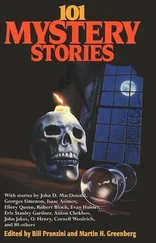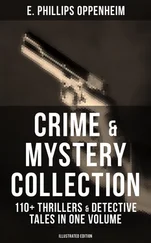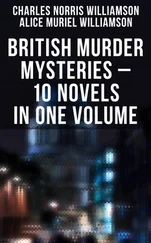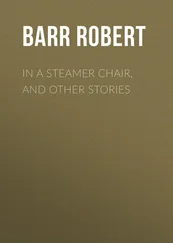'Where is your proof?'
I know many instances where our certainty was absolute, and also cases where we possessed legal proof as well, but legal proof which, for one reason or another, we dared not use in public; yet all this had no effect on the British authorities. They would never give up even the vilest criminal except on publicly attested legal evidence, and not even then, if the crime were political.
During my term of office under the French Government, no part of my duties caused me more anxiety than that which pertained to the political secret societies. Of course, with a large portion of the Secret Service fund at my disposal, I was able to buy expert assistance, and even to get information from anarchists themselves. This latter device, however, was always more or less unreliable. I have never yet met an anarchist I could believe on oath, and when one of them offered to sell exclusive information to the police, we rarely knew whether he was merely trying to get a few francs to keep himself from starving, or whether he was giving us false particulars which would lead us into a trap. I have always regarded our dealings with nihilists, anarchists, or other secret associations for the perpetrating of murder as the most dangerous service a detective is called upon to perform. Yet it is absolutely necessary that the authorities should know what is going on in these secret conclaves. There are three methods of getting this intelligence. First, periodical raids upon the suspected, accompanied by confiscation and search of all papers found. This method is much in favour with the Russian police. I have always regarded it as largely futile; first, because the anarchists are not such fools, speaking generally, as to commit their purposes to writing; and, second, because it leads to reprisal. Each raid is usually followed by a fresh outbreak of activity on the part of those left free. The second method is to bribe an anarchist to betray his comrades. I have never found any difficulty in getting these gentry to accept money. They are eternally in need, but I usually find the information they give in return to be either unimportant or inaccurate. There remains, then, the third method, which is to place a spy among them. The spy battalion is the forlorn hope of the detective service. In one year I lost three men on anarchist duty, among the victims being my most valuable helper, Henri Brisson. Poor Brisson's fate was an example of how a man may follow a perilous occupation for months with safety, and then by a slight mistake bring disaster on himself. At the last gathering Brisson attended he received news of such immediate and fateful import that on emerging from the cellar where the gathering was held, he made directly for my residence instead of going to his own squalid room in the Rue Falgarie. My concierge said that he arrived shortly after one o'clock in the morning, and it would seem that at this hour he could easily have made himself acquainted with the fact that he was followed. Still, as there was on his track that human panther, Felini, it is not strange poor Brisson failed to elude him.
Arriving at the tall building in which my flat was then situated, Brisson rang the bell, and the concierge, as usual, in that strange state of semi-somnolence which envelops concierges during the night, pulled the looped wire at the head of his bed, and unbolted the door. Brisson assuredly closed the huge door behind him, and yet the moment before he did so, Felini must have slipped in unnoticed to the stone-paved courtyard. If Brisson had not spoken and announced himself, the concierge would have been wide awake in an instant. If he had given a name unknown to the concierge, the same result would have ensued. As it was he cried aloud 'Brisson,' whereupon the concierge of the famous chief of the French detective staff, Valmont, muttered ' Bon ! and was instantly asleep again.
Now Felini had known Brisson well, but it was under the name of Revensky, and as an exiled Russian. Brisson had spent all his early years in Russia, and spoke the language like a native. The moment Brisson had uttered his true name he had pronounced his own death warrant. Felini followed him up to the first landing—my rooms were on the second floor—and there placed his sign manual on the unfortunate man, which was the swift downward stroke of a long, narrow, sharp poniard, entering the body below the shoulders, and piercing the heart. The advantage presented by this terrible blow is that the victim sinks instantly in a heap at the feet of his slayer, without uttering a moan. The wound left is a scarcely perceptible blue mark which rarely even bleeds. It was this mark I saw on the body of the Maire of Marseilles, and afterwards on one other in Paris besides poor Brisson. It was the mark found on the man in Greenwich Park; always just below the left shoulder-blade, struck from behind. Felini's comrades claim that there was this nobility in his action, namely, he allowed the traitor to prove himself before he struck the blow. I should be sorry to take away this poor shred of credit from Felini's character, but the reason he followed Brisson into the courtyard was to give himself time to escape. He knew perfectly the ways of the concierge. He knew that the body would lie there until the morning, as it actually did, and that this would give him hours in which to effect his retreat. And this was the man whom British law warned not to incriminate himself! What a people! What a people!
After Brisson's tragic death, I resolved to set no more valuable men on the track of the anarchists, but to place upon myself the task in my moments of relaxation. I became very much interested in the underground workings of the International. I joined the organisation under the name of Paul Ducharme, a professor of advanced opinions, who because of them had been dismissed his situation in Nantes. As a matter of fact there had been such a Paul Ducharme, who had been so dismissed, but he had drowned himself in the Loire, at Orleans, as the records show. I adopted the precaution of getting a photograph of this foolish old man from the police at Nantes, and made myself up to resemble him. It says much for my disguise that I was recognised as the professor by a delegate from Nantes, at the annual Convention held in Paris, which I attended, and although we conversed for some time together he never suspected that I was not the professor, whose fate was known to no one but the police of Orleans. I gained much credit among my comrades because of this encounter, which, during its first few moments, filled me with dismay, for the delegate from Nantes held me up as an example of a man well off, who had deliberately sacrificed his worldly position for the sake of principle. Shortly after this I was chosen delegate to carry a message to our comrades in London, and this delicate undertaking passed off without mishap.
It was perhaps natural then, that when I came to London after my dismissal by the French Government, I should assume the name and appearance of Paul Ducharme, and adopt the profession of French teacher. This profession gave me great advantages. I could be absent from my rooms for hours at a time without attracting the least attention, because a teacher goes wherever there are pupils. If any of my anarchist comrades saw me emerging shabbily from the grand Imperial Flats where Valmont lived, he greeted me affably, thinking I was coming from a pupil.
The sumptuous flat was therefore the office in which I received my rich clients, while the squalid room in Soho was often the workshop in which the tasks entrusted to me were brought to completion.
I now come to very modern days indeed, when I spent much time with the emissaries of the International.
It will be remembered that the King of England made a round of visits to European capitals, the far-reaching results of which in the interest of peace we perhaps do not yet fully understand and appreciate. His visit to Paris was the beginning of the present entente cordiale , and I betray no confidence when I say that this brief official call at the French capital was the occasion of great anxiety to the Government of my own country and also of that in which I was domiciled. Anarchists are against all government, and would like to see each one destroyed, not even excepting that of Great Britain.
Читать дальше












